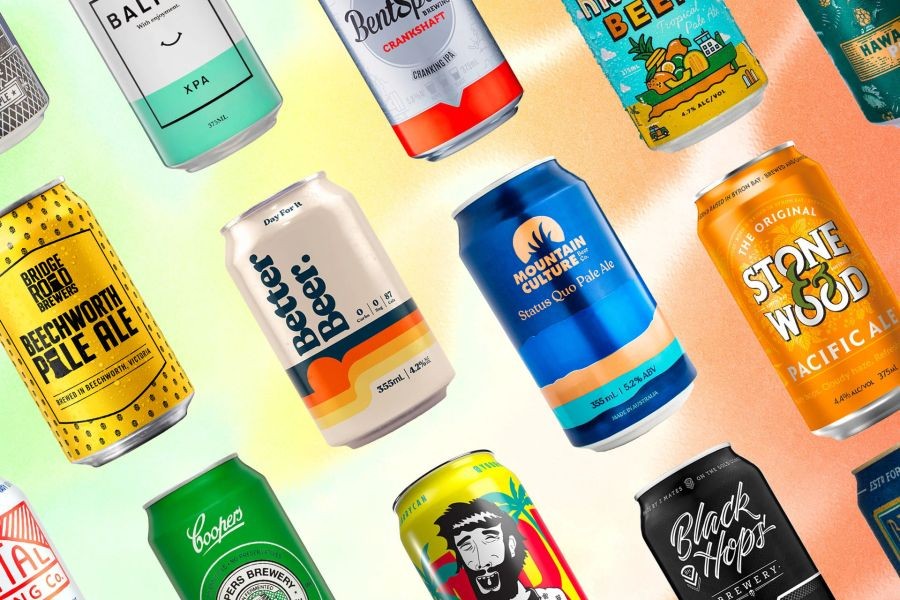In recent years, the Australian craft beer industry has attracted significant attention from large, multinational beer companies. This trend of big beer corporations acquiring local craft breweries is not just a passing fad but a strategic move influenced by multiple factors. This article delves into the reasons behind these acquisitions, offering a comprehensive analysis enriched with data, expert insights, and real-world examples relevant to the Australian context.
The Rise of Craft Beer in Australia
The craft beer segment in Australia has seen exponential growth over the past decade. According to the Australian Bureau of Statistics (ABS), craft beer production has increased by more than 12% annually, contributing significantly to the $4.3 billion Australian beer industry. This surge is driven by changing consumer preferences towards premium, locally sourced, and diverse beer options.
Case Study: Stone & Wood
One of the most notable acquisitions was the purchase of Stone & Wood by Lion, a subsidiary of Japanese beverage giant Kirin. Stone & Wood, established in 2008 in Byron Bay, quickly became a beloved brand known for its commitment to sustainability and community engagement.
Problem: Stone & Wood needed to scale its operations to meet increasing demand but faced financial and logistical constraints. Action: The acquisition by Lion provided the necessary capital and distribution channels to expand production without compromising quality. Result: Post-acquisition, Stone & Wood increased its production capacity by 25% and expanded its market reach across Asia-Pacific. Takeaway: Strategic partnerships with larger companies can provide craft breweries with the resources needed for growth, enabling them to reach new markets while maintaining their brand identity.
Why Big Beer Companies Are Interested
Market Share and Revenue Growth
The craft beer market offers lucrative opportunities for big beer companies seeking to diversify their portfolios and capture a larger market share. According to IBISWorld, craft beer accounts for 11% of the total beer sales in Australia, and this figure is expected to grow. By acquiring successful craft breweries, larger companies can tap into new customer segments and increase their profitability.
Consumer Trends and Preferences
There is a growing trend among Australian consumers towards artisanal and locally produced goods. The preference for craft beer is part of a broader movement towards sustainable and ethical consumption. Big beer companies recognize this shift and are eager to align with brands that embody these values, thus enhancing their market reputation.
Regulatory Insights
The Australian Competition & Consumer Commission (ACCC) plays a pivotal role in ensuring that these acquisitions do not stifle competition. The ACCC scrutinizes such deals to prevent monopolistic practices and ensure that consumers continue to have access to a variety of beer options. However, the regulatory environment remains supportive of acquisitions that promote economic growth and market diversity.
Financial Impact Metrics
For large corporations, the financial benefits of acquiring a craft brewery can be substantial. A study by Deloitte found that companies integrating craft brands into their portfolios experienced a 15% higher EBITDA margin compared to those relying solely on mainstream beer products. This metric underscores the financial attractiveness of such acquisitions.
Comparative Analysis: Global vs. Australian Trends
Globally, the acquisition of craft breweries by major beer companies is not unique to Australia. In the U.S., for instance, Anheuser-Busch InBev has acquired several craft breweries, including Goose Island and Blue Point. The strategy is similar: expanding market reach and tapping into new consumer bases. However, the Australian market presents unique challenges and opportunities due to its distinct consumer preferences, regulatory landscape, and geographical considerations.
Pros and Cons of Acquisitions
Pros:
- Expanded Distribution: Access to broader distribution networks improves market reach.
- Financial Stability: Infusion of capital allows for scaling operations and innovation.
- Brand Synergy: Combines the authentic appeal of craft beers with the resources of larger companies.
Cons:
- Brand Dilution: Risk of losing the unique identity that attracts loyal customers.
- Consumer Perception: Potential backlash from consumers who prefer independent brands.
- Regulatory Challenges: Navigating complex regulations can be resource-intensive.
Common Myths & Mistakes
Myth: Craft Breweries Lose Their Authenticity After Acquisition
Reality: While this concern is valid, many acquired craft breweries maintain their brewing processes and brand ethos. Companies like Lion have adopted strategies that allow acquired breweries to operate independently, preserving their unique characteristics.
Myth: Big Beer Companies Only Care About Profits
Reality: While profit is a driving factor, large companies also focus on sustainability and community engagement to enhance their brand image. For instance, Kirin has invested in environmental initiatives in collaboration with its acquired breweries.
Future Trends and Predictions
Looking ahead, the Australian craft beer market is poised for continued growth. By 2028, analysts predict that craft beer will account for 20% of the total beer market, driven by innovative flavors, sustainable practices, and a strong community focus. This growth presents opportunities for further acquisitions, though companies will need to navigate evolving consumer expectations and regulatory landscapes.
Conclusion
The acquisition of Australian craft breweries by big beer companies is a multifaceted trend influenced by market dynamics, consumer preferences, and strategic goals. These acquisitions offer benefits such as expanded distribution and financial stability while posing challenges like brand dilution and regulatory hurdles. As the market evolves, both craft breweries and large corporations must adapt to remain competitive.
For craft breweries considering acquisition, the path forward involves balancing growth aspirations with the preservation of brand identity. For consumers and stakeholders, understanding the motivations and implications of these acquisitions is crucial for navigating the evolving beer landscape in Australia.
People Also Ask (FAQ)
- How does the acquisition of craft breweries impact Australian consumers? Acquisitions often lead to wider distribution of craft beers, providing consumers with increased access to diverse beer options while maintaining competitive pricing.
- What are the biggest misconceptions about craft brewery acquisitions? A common myth is that craft breweries lose their authenticity post-acquisition. However, many maintain their core values and unique brewing processes.
Related Search Queries
- Why do large companies buy craft breweries?
- Impact of acquisitions on Australian craft beer market
- Future of craft beer in Australia
- Consumer trends in Australian beer industry
- ACCC role in beer industry acquisitions































